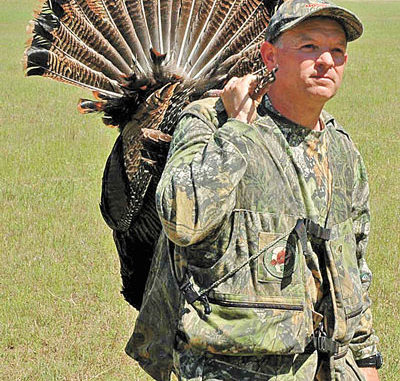
This Palmetto State ‘all-star’ team has definite ideas about how to tackle toms in the spring.
Every sport has its superstars, players who stand head and shoulders above the rest: Albert Pujols in baseball, Tom Brady in football, Tiger Woods in golf — and turkey hunting is no exception.
There are turkey hunters who, year-in and year-out, will kill their limits and then help other hunters fill their tags as well.
South Carolina can boast an all-star team of turkey hunters that can hold its own with any group, anywhere. Mark Prudhomme, Steve Cobb, William Terry and Ricky Padgett know what they’re talking about when it comes to hunting turkeys.
They have been hunting turkeys for decades, and when turkey season is out, they spend the rest of their year competing in calling contests, making calls or doing seminars and other events, as pro-staff members for various companies. In short, they are the best of the best.
Prudhomme, who hails from Georgetown, has won four consecutive World Hooting Championships, two consecutive World Gobbling Championships, two National Wild Turkey Federation Grand National Hooting Championships, two Grand National Two-Man Championships, and second place in the Grand National Champion of Champion calling contest. He is a wildlife manager for a private company and is a pro staffer for Knight and Hale Game Calls.
What makes an elite turkey hunter better than the rest?
“I know a lot of good turkey hunters, and there are several things that make a good turkey hunter better,” he said. “One is being well-rounded in everything. You need to be in tune to everything around you. Woodsmanship will help you kill turkeys as much as anything
“You need the ability to sound just like a turkey. Calling is important. It’s not the most important thing, but being able to sound like a turkey with more than one call will help you with the older, tougher birds.
“You also need to be able to make split second decisions, and a lot of that is based on experience. I don’t know that anybody makes the right decision all the time, but what makes you a successful turkey hunter is making the right decision most of the time. Learning to put yourself where the turkey wants to be, and how and where to set up — all that is due to experience.
“It takes a lot of years chasing turkeys to get to the point where you can be successful consistently. They still whip me. Nobody has all the answers, but you need to have a basic knowledge of turkeys: where they like to eat, what they like to eat, where they go when pressured, those kinds of things. Experience, woodsmanship and calling — if you can put all those together, you will become a good turkey hunter.”
Steve Cobb of Union would probably agree with Prudhomme on many points. An accomplished competition caller and pro staffer for Team Realtree and Hunters Specialties who holds down a full-time job with the U.S. Forest Service, he won the South Carolina Junior Calling championships five times in a row and has won the South Carolina turkey calling championships seven times. When Cobb talks turkey, it’s well worth the time to sit down and listen.
“I learned how to turkey hunt from Billy O’Daniel, a champion caller,” Cobb said. “One of the most-important things he taught me was you better not call that older, wary, tough turkey before it gets light enough to see. Those old birds are sharp enough to know that if they hear a hen yelping from the ground, in the dark, something is wrong.
“Nothing is 100 percent, but if you will wait until it is daylight before you give that first set of yelps, you will kill more turkeys. I don’t like to call at all until that gobbler is on the ground. If you don’t call at all, you have a 50-50 chance he is going to fly down in your direction. If you call while he is still on the roost, you cut that chance by a fifth.”
Ricky Padgett of Rowesville, a turkey killing machine in his own right, said the same thing.
“I can’t remember the last time I called to a turkey on the roost. If you want to talk to turkeys, call to them while they are still in the tree. If you want to kill turkeys, wait until they are on the ground to call them,” said Padgett who owns Spring Allure Custom Turkey Calls.
“One thing you have to learn is how to read a turkey. I can tell when I get one to gobble whether he is interested or not, and that comes from hearing a lot of turkeys,” he said. “The other key to being a good turkey hunter is patience. How many times have you worked a bird and had him get quiet? You wait as long as you think you need to and give up. As soon as you get up to move, there he is. All you had to do was sit still and wait; he was on the way. It’s going to happen, but the more patient you are, the less it’s going to happen.”
Cobb said that being able to judge distance — not range — is also important.
“The other thing I think a good turkey hunter needs to know is how to judge distances of gobbling turkeys,” he said. “That’s something that comes with experience; it isn’t something you can tell somebody how to do. The more you get in the woods and the more you hear turkeys gobble, the better you can tell where they are. The closer you can set up to him, the better, and if you don’t know how far he is, you can’t do that.
“Scouting helps with that as well. If I know the lay of the land and know where he is going, I can be there.”
Being able to stick with it for long periods of time will also get you more turkeys, according to William Terry, the owner of Legacy Game Calls in Van Wyck.
“The one thing that makes the best turkey hunters is perseverance. Being a good caller will help you kill turkeys that you might not kill otherwise, but I kill more turkeys by simply not quitting,” said Terry, the winner of the most recent South Carolina Turkey Calling contest and a guide for Big Woods Outfitters in Kingstree.
“I can give you a good example. The year before last, I took a good friend and his daughter hunting. We hunted from daylight until 10 without hearing a bird gobble. We ran into some other hunters who said they were going to the Waffle House, but we decided we were going to keep on hunting. We heard the first gobble at noon. We killed that bird at 1:15 that afternoon.
“That was the first turkey we heard that day. Three quarters of all turkey hunters would have quit before that. Not quitting is the biggest thing. That to me, is the absolute bottom line.”
When it comes to scouting and dealing with “problem birds,” the four hunters have a couple of ideas in common. They all spend hours and hours in the woods, before and during the season. Padgett hunts “every day unless it is a torrential downpour. Even if I only go for an hour before work, I can at least learn what the birds are doing that morning so I can have a better idea of what they might do (the next day).
All four hunters agreed that if they could tell someone one thing to help them kill turkeys, it would be that there’s no substitute for seeing and hearing real turkeys.
Almost 43,500 turkey hunters hit the South Carolina woods last season. Fewer than three percent of those hunters killed three or more birds. There are not any shortcuts to becoming one of the best of the best; all four experts have found that patience, persistence, practice and experience are keys to success. Take their tips to heart: practice calling with different type calls, listen to a lot of turkeys, spend as many days in the woods as you can, and earn those years of experience. You may not become the next superstar, but you can be sure you will become a better turkey hunter.

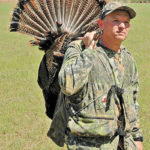
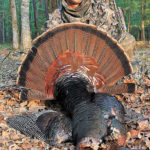
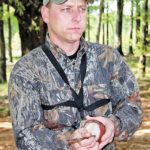
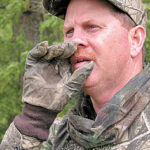


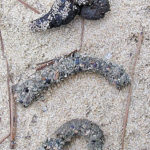


Be the first to comment